LACONIA — Belknap Superior Court Judge Elizabeth Leonard dismissed one of nine charges leveled against Hassan Sapry, and affirmed two others, during his second trial on Tuesday afternoon.
Tuesday morning, during the first day of testimony by defense witnesses, attorney Mark Sisti asked Leonard to dismiss first- and second-degree murder charges against Sapry, 27, who is accused in the 2019 killing of Wilfred Gumzan Sr. in Guzman Sr.'s Blueberry Lane apartment.
Sisti, who along with Amy Ashworth is defending Sapry, asked Leonard to dismiss a charge of falsifying physical evidence, as well.
Leonard dismissed the evidence charge, pertaining to a cell phone owned by Guzman Sr. which Sapry apparently threw into Lake Winnisquam following the killing. She denied the motions to dismiss the two murder charges.
Tuesday was also the defense’s first crack at proving their burden — Sapry is invoking a not guilty by reason of insanity defense, which he must prove to jurors by a standard of “clear and convincing evidence.” The State of New Hampshire, represented by prosecutors Jeffery Strelzin and Alexander Kellermann, does not have to disprove his claims.
The case will resume in court on Thursday, Aug. 28, the soonest an expert for the defense can appear.
Sisti and Ashworth, of Sisti Law Offices, called to the stand several individuals who knew Sapry and his family personally, who spoke to the changes in behavior they observed in Sapry in the months preceding the killing of Guzman Sr. in April 2019.
Sapry’s brother, Mohamed Ali Sapry, 29, told jurors he and Hassan grew up under difficult circumstances in Baghdad, in the shadow of Saddam Hussein’s Iraq, where brutality, repression and regime vengeance against dissidents was routine.
As children, regime propaganda, including killings and mutilations — firing squads, executions and feeding regime opponents to lions — were routinely broadcast on national television. Other than the violence, televisions only broadcast readings of the Quran, Mohamed said.
The family lived there until 2006, when they escaped to Damascus, Syria, as refugees, then eventually to Laconia. The period before their flight to Syria was increasingly tumultuous. Post 2003, when the Hussein regime fell and the country was invaded by a western coalition including the United States, the streets of Baghdad were increasingly violent and unpredictable.
Mohamed recounted numerous trials and tribulations witnessed by himself and his brother, who routinely walked to and from school unaccompanied. Improvised explosive devices detonated, car bombs exploded nearby, gunfire — presumably between groups he described as “militias” and U.S. forces — was ever-present in the background, and terrorist killings were broadcast widely.
The brothers witnessed a presumed IED detonate at their school when American soldiers stopped by, handing out candy and soccer balls. It killed students at the school and was a gruesome scene, according to Mohamed.
“It smelled like you mixed tar and blood at the same time,” he said, noting he can remember the smell to this day.
The Sapry family are apparently Shiite Muslims, a minority group across the Middle East, which Mohamed told jurors put them at a disadvantage, and at times, made them a target of Sunni violence. One of their uncles was executed by the Hussein regime before it fell.
“So that put us on the radar,” he said. “My uncle was a victim of Saddam Hussein’s execution.”
After the regime fell and Iraq was invaded, life was difficult, with their father Ali Hassan Sapry standing in long lines in the early hours of the day to gather supplies. Eventually he took a job with the coalition, serving as a bodyguard with the Swedish embassy, protecting prominent dignitaries.
At one point, Ali was gone for longer than usual. When he returned, he was badly injured, and they later understood he had been kidnapped and tortured. One day he returned to the family home and they left for Syria the same night, but not before forfeiting all their valuables to a group Mohamed can’t identify today.
“We didn’t even sell them, we just straight up gave it to them,” he said Tuesday.
In Damascus, they lived in tents at a refugee camp, and later moved into an apartment complex with other Iraqi refugees. They attended a local school, where Mohamed told jurors he and Hassan were badly mistreated — at times abused — because of their religious identity and nationality. Hassan was beaten by other students at times and never fought back, but Mohamed fought back on his behalf on one occasion.
“To put it politely, he’s a gentle giant,” Mohamed said. “To put it bluntly, he’s a coward.”
The family then moved to Laconia and enrolled in school. Hassan attended Laconia public schools through his graduation, and both brothers loved soccer and pursued work as referees as they grew older.
But in 2018, Hassan quit working as a referee, quit working at Kellerhaus in the Weirs and quit attending courses at Lakes Region Community College. Mohamed knew something was wrong, and tried to help his brother, but he wouldn’t engage with him on the topic, or about anything else.
“He was refusing my help, I couldn’t help him,” he said.
Mazahir Imran of Moultonborough is a close friend to the Sapry family, particularly Ali. He told jurors he similarly tried to understand what was going on with Hassan in the months before Guzman Sr.’s death, why he’d dropped out of school and quit his jobs, but he wasn’t able to get through to him, either.
"Something was wrong, emotionally and mentally he was not there."






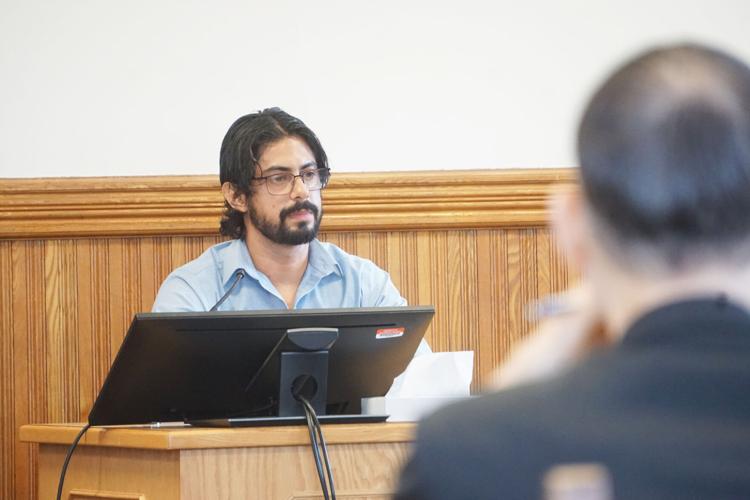
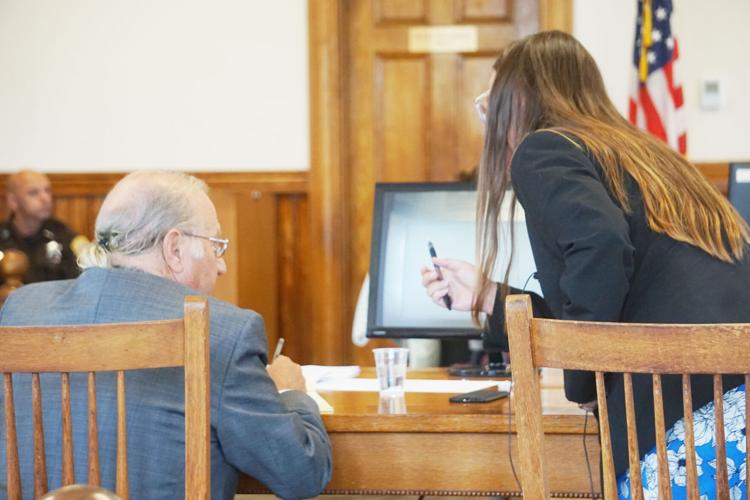
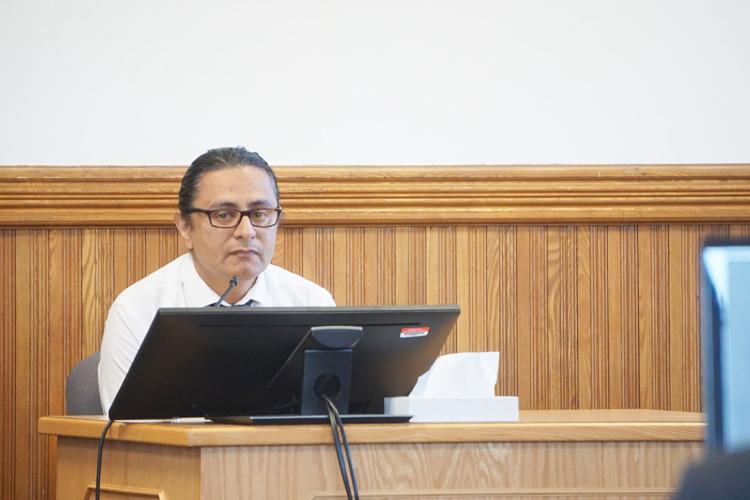
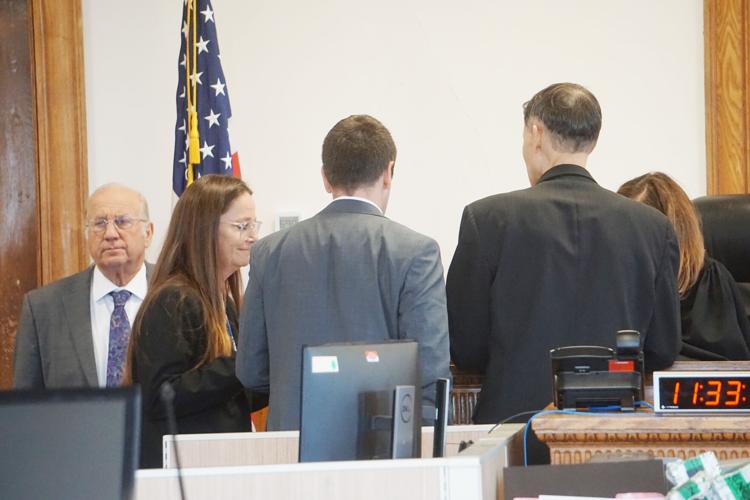
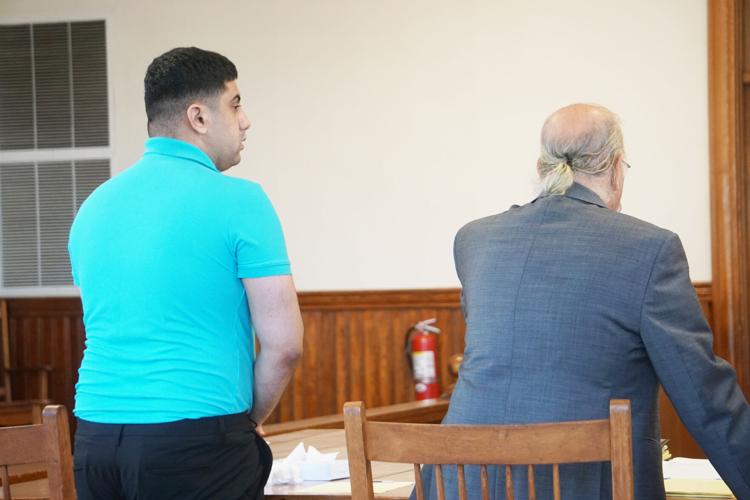











(0) comments
Welcome to the discussion.
Log In
Keep it Clean. Please avoid obscene, vulgar, lewd, racist or sexually-oriented language.
PLEASE TURN OFF YOUR CAPS LOCK.
Don't Threaten. Threats of harming another person will not be tolerated.
Be Truthful. Don't knowingly lie about anyone or anything.
Be Nice. No racism, sexism or any sort of -ism that is degrading to another person.
Be Proactive. Use the 'Report' link on each comment to let us know of abusive posts.
Share with Us. We'd love to hear eyewitness accounts, the history behind an article.